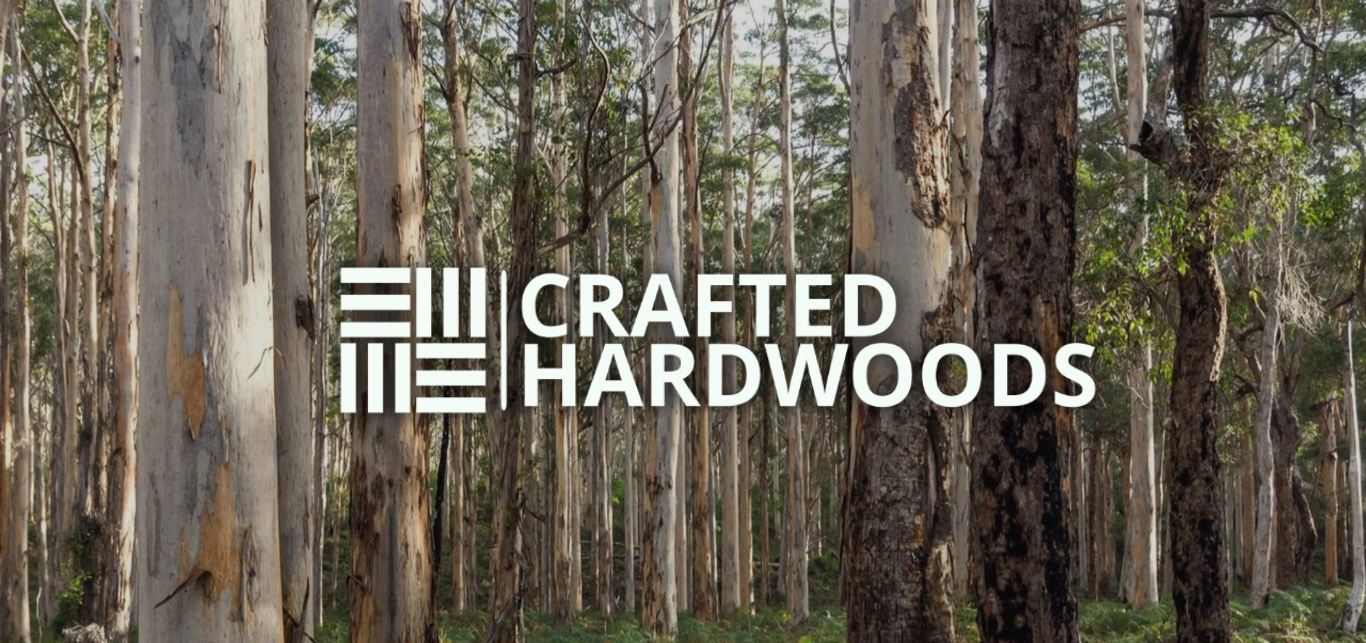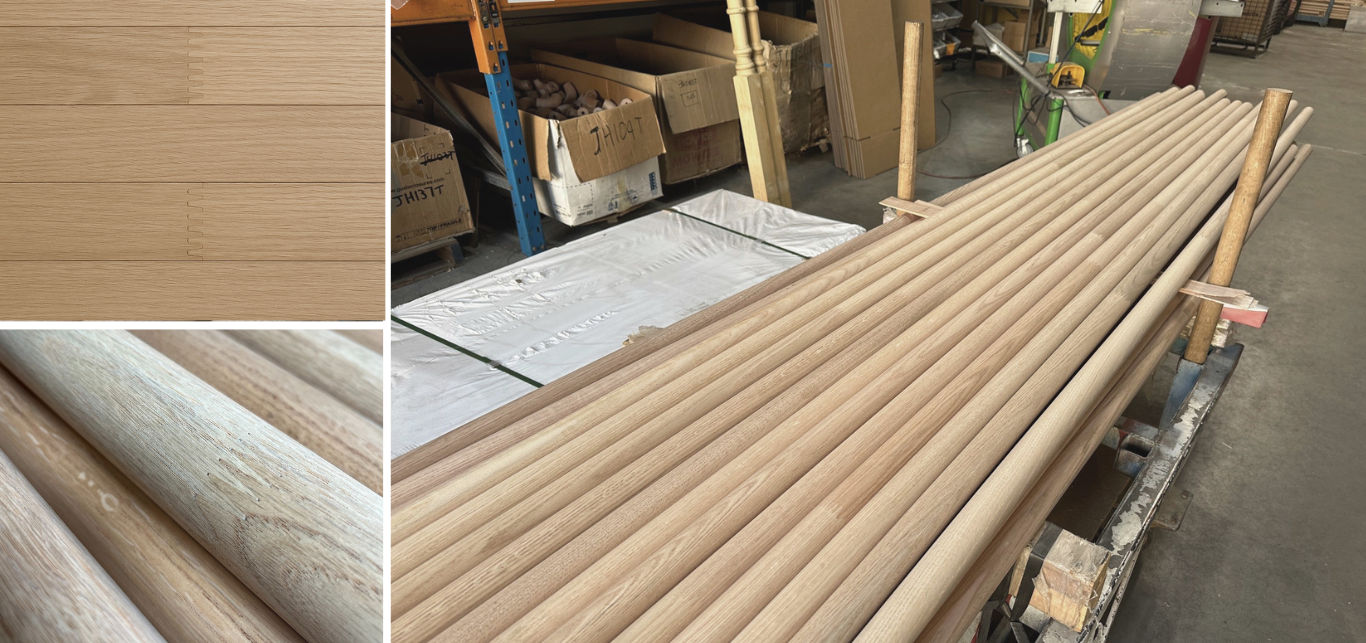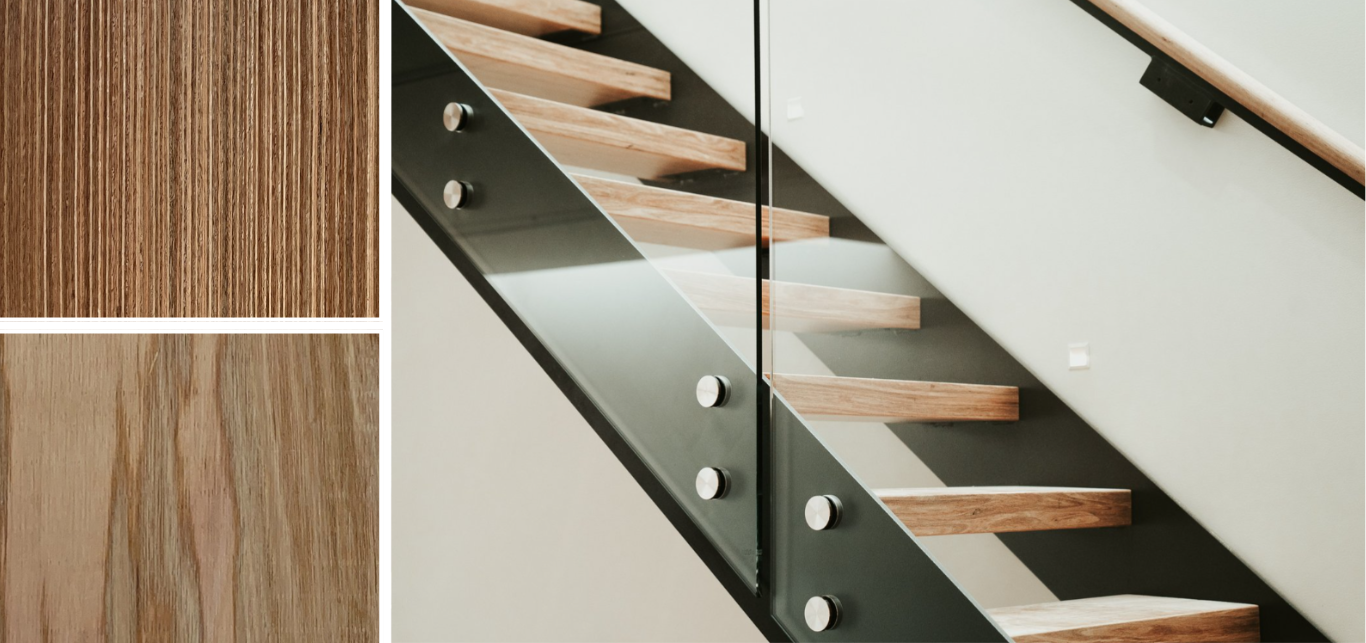Monday, January 23, 2023
How To Choose the Best Timber Species for Your Project
Contrary to popular belief, not all timber species are created equal; some are inexpensive and easy to work with, like pine and meranti, while others are more durable and decorative, such as American oak and Jarrah.
Contrary to popular belief, not all timber species are created equal; some are inexpensive and easy to work with, like pine and meranti, while others are more durable and decorative, such as American oak and Jarrah. What’s important on one job, may not be on another, which is why we’ve compiled a list to help you decide which timber species might work for you, and which ones you should avoid.
All of the timber species we work with are considered ‘select grade’ which is the highest quality available on the market. Clarity of the timber will vary from species to species however, with some varieties being more susceptible to surface checking and knots than others. Below, we have listed the most frequently asked questions (such as which timbers are clearest!) and a handy ‘jump to’ list to help make your decision.
Want a physical copy of this article?
Download the Hamptons Style Staircase BrochureProduct Information
Brochures - Photos - Videos
Download our current product brochures, view our latest photos, and watch our most recent videos.




Jump To Section:
- FAQ
- AMERICAN OAK
- BLACKBUTT
- JARRAH
- KWILA/MERBAU
- MERANTI
- PINE - CLEAR
- PINE- FINGERJOINTED
- SPOTTED GUM
- VICTORIAN ASH
FAQ
Which timber species can be used outdoors?
American Oak, Blackbutt, Jarrah, Kwila/Merbau, Finger Jointed Pine (Only when treated & waterproof glue is used), Clear Pine (Only when treated), Spotted Gum
Which timber species come in long lengths?
Victorian Ash, American Oak, Kwila/Merbau, Finger Jointed Pine
Which timber species are available in set lengths?
American Oak, Jarrah, Kwila/Merbau, Finger Jointed Pine
Which timber species are clearest?
American Oak, Kwila/Merbau, Meranti, Pine, Victorian Ash
AMERICAN OAK
Pros
- Available in set lengths
- Light, desirable colour
- Hardwood
- Available in long lengths (max 4m-4.5m)
- Suitable for outside use
Cons
- Imported species
- Expensive
American oak is arguably one of the most popular, attractive, and sought after timber species available on the market today. It’s light base and darker grain makes it popular with interior decorators, and is often utilized in designer homes, magazines and furniture. It is one of very few hardwoods available in set lengths, and therefore is perfect for use on feature walls, screens and in furniture pieces.
While it has similar structural qualities to Victorian ash, it has a slightly higher price point due to being imported, as opposed to locally grown. Unlike Victorian ash however, it’s suitable for outdoor use when properly waxed or finished.
BLACKBUTT
Pros
- Suitable for outdoor use
- Good fire resistance
- Australian Hardwood
Cons
- Not Available in long lengths (Max 3m-4m)
- Not suitable for painting
- Not suitable for lamining
- Susceptible to surface checking & gum vein
- Expensive
When used in the right circumstances, blackbutt makes for a beautiful statement piece. The same qualities that make it desirable in the eyes of some however, make it undesirable/unusable to others. All gum species (blackbutt included) are susceptible to surface checking and gum vein throughout. This checking gives the timber character, but can also cause problems with lamination and painting.
Blackbutt is only available in random lengths, and generally runs shorter than other hardwoods such as Victorian Ash and American Oak.; it is therefore used less frequently in staircases and furniture pieces, and more commonly in decking and flooring.
JARRAH
Pros
- Available in set lengths
- Desirable deep red colour
- Suitable for outside use
- Good fire resistance
- Australian hardwood
Cons
- Not Available in long lengths (Max 3m-4m)
- Susceptible to surface checking & gum vein
Jarrah is one of the most easily recognisable, and versatile Australian hardwoods, renowned for its strength and durability. It is popular amongst designers and architects due to its unique, deep, red undertone and evenly textured grain. It’s decorative qualities make it perfect for use in furniture and stair/handrails.
Like many gum species it is perfect for use outdoors, and has a naturally high resistance to rot, weather, termites and borers. This makes jarrah one of the most popular timbers, alongside kwila/merbau for external handrail, and decking.
Jarrah typically runs shorter than other, more readily available, species like Victorian ash. As a result, when it is used in long, continuous handrails, joining is often required.
KWILA / MERBAU
Pros
- Hardwood
- Suitable for outside use
- Available in long lengths (approx 5.2m)
- Available in set lengths
Cons
- Susceptible to gum bleed
- Susceptible to surface checking & gum vein
Kwila is our best selling outdoor timber species due to its inexpensiveness, density and durability. It has a high natural resistance to both water and insects, and does not need to be painted or treated to be used externally (rather, it tends to be polished). Commonly used on boats, yachts and jetties, kwila is even suitable for outdoor use in marine and seaside environments.
Although less susceptible to checking and veins than other gum species, kwila is more susceptible to gum bleed than other timbers such as jarrah and blackbutt. As a result, it is recommended that tarp be laid below external kwila treads and handrails for the first few weeks/rainfalls to ensure the beed does not stain any material below them.
Kwila runs much longer than most other external use timber species, and as a result it is the most suitable for outdoor handrails. It has a dark, deep colouring that compliments jarrah and spotted gum well (timber species most commonly used in decking), but also takes well to paint, making it perfect for use on ourdoor decks and terraces.
MERANTI
Pros
- Light red/pink in colour
- Inexpensive
- Long lengths available (approx. 4.8m)
- Available in set lengths
Cons
- Not suitable for painting or staining
- Softwood
- Not for outdoor use
Meranti has many of the same desirable qualities of clear pine, but a pinker colour which is most often likened to Victorian Ash. It is available in relatively long lengths, and is therefore regularly used in the construction of staircases and handrails - particularly in federation and heritage style homes. Being a soft timber, meranti is a popular choice for turned timber products such as furniture legs and posts.
Like other softwoods, meranti is not resistant to termites, weather or wood rot and is therefore better suited to indoor applications. It is also a porous timber, meaning that paint and stain tend to be absorbed quickly and do not apply evenly. Therefore, meranti is best finished using clear lacquers or other transparent products.
CLEAR PINE
Pros
- Inexpensive
- Available in long lengths
- Suitable for staining
- Can be used outdoors when treated
Cons
- Softwood
- Unavailable in set lengths
Similar to FJ pine, clear pine is a popular and readily available softwood. While slightly more expensive than the finger jointed alternative, clear pine is relatively inexpensive when compared to hardwood equivalents.
When used indoors, clear pine is perfect for either staining or painting, and is therefore arguably the most commonly used timber species in furniture making. The majority of our timber legs are made from pine (although some more popular designs are also available in Victorian ash).
Clear pine can be used externally when properly treated against rot, borers and weather. Oftentimes this wood treatment is applied by the supplier prior to dispatch, but it can also be applied after purchase (both small and large quantities are available for purchase on our website). Generally, treated timber is green/blue in colour and only treated externally. This means that treated products must be painted, often using several coats, to ensure their longevity.
FINGERJOINTED PINE
Pros
- Available in set lengths
- Inexpensive
- Minimal bowing
- Minimal bowing
Cons
- Unsuitable for staining
- Unsuitable for staining
- Not for outdoor use (unless treated & waterproof glue is used)
Finger jointed pine is arguably the most popular and readily available material on the market due to its low cost, light colour, and versatility. It is commonly used as handrail due to the availability of long, consistently sized lengths of timber.
As finger jointing is a visible method of joining, FJ pine is not often used on projects where the timber is going to be left raw, clear varnished, or stained. Generally, it is considered a paint grade product, however can be used in instances where this is being highlighted as a feature, or the client is made aware of the visible joins prior to installation.
FJ pine is generally unsuitable for outdoor use as when exposed to moisture the joints can loosen and separate (unless specialised waterproof glue, and wood treatment are used). Clear treated pine is often considered the most suitable for outdoor use.
FINGERJOINTED PINE
Pros
- Available in set lengths
- Inexpensive
- Minimal bowing
- Minimal bowing
Cons
- Unsuitable for staining
- Unsuitable for staining
- Not for outdoor use (unless treated & waterproof glue is used)
Finger jointed pine is arguably the most popular and readily available material on the market due to its low cost, light colour, and versatility. It is commonly used as handrail due to the availability of long, consistently sized lengths of timber.
As finger jointing is a visible method of joining, FJ pine is not often used on projects where the timber is going to be left raw, clear varnished, or stained. Generally, it is considered a paint grade product, however can be used in instances where this is being highlighted as a feature, or the client is made aware of the visible joins prior to installation.
FJ pine is generally unsuitable for outdoor use as when exposed to moisture the joints can loosen and separate (unless specialised waterproof glue, and wood treatment are used). Clear treated pine is often considered the most suitable for outdoor use.
VICTORIAN ASH
Pros
- Long lengths available (max length approx. 5.2)
- Australian hardwood
- Light, desirable colour
- Minimal bowing
- Inexpensive
Cons
- Not suitable for external use
- Not available in set lengths
Victorian Ash, sometimes more broadly referred to as Australian Oak, is the group name for two Australian hardwoods grown in alpine areas of Victoria. When these two species are paired with a third (messmate), it is marketed as Tasmanian Oak (Also broadly referred to as australian oak). As a result, these three species share very similar characteristics and colour palettes, and can be used interchangeably with one another. Victorian Ash is a light, pinkish/blonde colour, making it perfect for either staining, waxing or lacquering.
While Victorian Ash isn’t suitable for outdoor use, it is still the best-selling Australian hardwood on the market due to its affordability and durability. It is the most commonly used hardwood used in staircase construction as it is long and straight: perfect for handrails. Being an extremely clear timber, it is also great for laminating and painting. Its durability means it will not dent or mark as easily as softwoods such as pine or meranti.
People Also Read

Australian Made Sustainable Timber Alternatives | Working With Crafted Hardwoods
Over the last 80 years, Hammersmith has had the privilege of working alongside countless Australian-owned and operated businesses: from stairbuilders, to timber merchants, to furniture makers.

What is Finger-jointed Timber?

What is EWP Timber / Engineered Wood Product?
EWP (Engineered Wood Product) is real timber! It is made by stacking and gluing together multiple thin layers (or veneers) of solid timber on top of one another, usually with the grain running in the same direction. These layers are then compressed and glued together to form a strong, stable, and uniform piece of timber that can be used in visible, finished applications, such as stair treads, handrails, and wall panelling.
